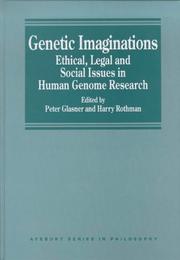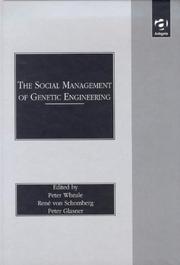| Listing 1 - 10 of 16 | << page >> |
Sort by
|
Book
ISBN: 3832178155 9783832178154 3832178147 9783832178147 Year: 2002 Publisher: Köln : DuMont,
Abstract | Keywords | Export | Availability | Bookmark
 Loading...
Loading...Choose an application
- Reference Manager
- EndNote
- RefWorks (Direct export to RefWorks)
Cities and towns, Medieval --- Cities and towns, Medieval. --- Civilization, Medieval. --- Civilization, Medieval. --- Stra�enname. --- Street names --- Street names. --- Travel. --- Cologne (Germany) --- Cologne (Germany) --- Germany --- Köln. --- Description and travel.
Book
ISBN: 1134162537 Year: 2007 Publisher: Taylor & Francis
Abstract | Keywords | Export | Availability | Bookmark
 Loading...
Loading...Choose an application
- Reference Manager
- EndNote
- RefWorks (Direct export to RefWorks)

ISBN: 0754632377 Year: 2004 Publisher: Aldershot Ashgate
Abstract | Keywords | Export | Availability | Bookmark
 Loading...
Loading...Choose an application
- Reference Manager
- EndNote
- RefWorks (Direct export to RefWorks)

ISBN: 0710084552 9780710084552 Year: 1977 Publisher: London Routledge and Kegan Paul
Abstract | Keywords | Export | Availability | Bookmark
 Loading...
Loading...Choose an application
- Reference Manager
- EndNote
- RefWorks (Direct export to RefWorks)
Sociology of religion --- Sociological theories --- Secularism --- Sociology --- Secularization (Theology) --- Religion and sociology --- Methodology --- 211.55 --- 316:2 --- -#SBIB:316.331H600 --- #SBIB:316.331H600 --- Social theory --- Social sciences --- Ethics --- Irreligion --- Utilitarianism --- Atheism --- Postsecularism --- Secularisatie. Entmythologisierung --- Godsdienstsociologie --- Secularisatie: algemeen --- Secularism. --- Methodology. --- 316:2 Godsdienstsociologie --- 211.55 Secularisatie. Entmythologisierung --- Sociology - Methodology

ISBN: 1840143568 Year: 1999 Publisher: Aldershot Ashgate
Abstract | Keywords | Export | Availability | Bookmark
 Loading...
Loading...Choose an application
- Reference Manager
- EndNote
- RefWorks (Direct export to RefWorks)
The chapters in this volume address the issues of human genetics and new technologies through discussions of choice and informed decision-making, risks and hazards, the economic and political organization of new technology, and the public as well as the scientists understanding of science. The title of this book derives from C. Wright Mills' classics "The sociological imagination" (Penguin, 1970), in which he sees the essential project of social science as the use of the imagination to "grasp history and biography and the relations between the two in society". This enables the social scientist to "range from the most impersonal and remote transformations to the most intimate features of the human self". Another of Mills' concerns was the relationship between "the personal troubles of the milieu" and "the public issues of social structure" and these are most acutely illustrated in human genetics, the most personal of the new technologies. The chapters in this volume address these issues through discussions of choice and informed decision-making, risks and hazards, the economic and political organization of the new technology, and the public as well as the scientist's understanding of science. The methods used range from defiled ethnographies, through deconstructions of text and action, to surveys and interviews.
#GBIB:CBMER --- Medical genetics --- Social aspects. --- Social aspects --- Human Genome Project --- HGP --- H.G.P.

ISBN: 1859726860 Year: 1998 Publisher: Aldershot Ashgate
Abstract | Keywords | Export | Availability | Bookmark
 Loading...
Loading...Choose an application
- Reference Manager
- EndNote
- RefWorks (Direct export to RefWorks)
The emerging techniques in genetic engineering constitute a technological revolution with the potential to alter our environment and reconstitute animals and plants. This book presents recent work by European experts on moral philosophy, public policy, and the regulation and control of genetically controlled organisms. It sets out to articulate the key issues, controversies and possible solutions to the problems posed by genetic engineering and modern biotechnology. Areas covered include transgenic animals, xenografting, patenting life, human genome research, sustainable development, environmental release of genetically engineered organisms (GEO's), risk-assessment techniques and regulations. The book deals with the way this new technology can be democratized and "socially managed".
Molecular biology --- genetische engineering (manipulatie, gentechnologie) --- menselijk genoom --- gentherapie --- biotechnologie --- dier (rechten) --- genetisch gemodificeerd organisme (GGO) --- génie génétique (ingénierie, manipulation génétique) --- génome humain --- thérapie génique --- animal (droits) --- organisme génétiquement modifié (OGM) --- Genetic engineering --- Human genetics --- Social aspects

ISBN: 1134162588 1280710470 9786610710478 0203962893 041539323X 0415759439 113416257X Year: 2017 Publisher: Abingdon, Oxon ; New York, NY : Routledge,
Abstract | Keywords | Export | Availability | Bookmark
 Loading...
Loading...Choose an application
- Reference Manager
- EndNote
- RefWorks (Direct export to RefWorks)
New genetic technologies cut across a range of public regulatory domains and private lifeworlds, often appearing to generate an institutional void in response to the complex challenges they pose. As a result, a number of new social formations are being developed to legitimate public engagement and avoid the perceived democratic deficit that may result. Papers in this volume discuss a variety of these manifestations in a global context, including:genetic data bankscommittees of inquirynon-governmental organisations (NGOs)national research labo
Medical genetics --- Genetic engineering --- Social aspects. --- Moral and ethical aspects. --- Human Genome Project --- HGP --- H.G.P. --- stem --- cell --- research --- crops --- lines --- embryonic --- food --- bioethics --- discourse --- talk

ISBN: 9781134161188 1280710497 9786610710492 0203962923 0415394074 1138010464 1134161182 9780203962923 9781134161133 9781134161171 9780415394079 9781138010468 1134161174 Year: 2017 Publisher: Abingdon, Oxon ; New York, NY : Routledge,
Abstract | Keywords | Export | Availability | Bookmark
 Loading...
Loading...Choose an application
- Reference Manager
- EndNote
- RefWorks (Direct export to RefWorks)
What implications are applications of new genetic technologies in biomedicine having on social identity in today's society? New Genetics, New Identities, a wide-ranging multi-disciplinary volume in the CESAGen Genetics & Society Book series, presents not only theoretical reflection but also empirical case studies drawn from an international array of authors. Including the highly controversial areas of reproductive technologies and use of human embryos in biomedical research, other key features include:a fresh analysis of a wide-range of
Genetics --- Medical technology --- Moral and ethical aspects. --- Health care technology --- Health technology --- Technology --- genographic --- project --- medicine --- condition --- clinical --- geneticists --- human --- genome --- post-genomic --- science

ISBN: 0710205031 Year: 1986 Publisher: London Routledge & Kegan Paul
Abstract | Keywords | Export | Availability | Bookmark
 Loading...
Loading...Choose an application
- Reference Manager
- EndNote
- RefWorks (Direct export to RefWorks)
Book
Year: 2007 Publisher: London : Taylor & Francis,
Abstract | Keywords | Export | Availability | Bookmark
 Loading...
Loading...Choose an application
- Reference Manager
- EndNote
- RefWorks (Direct export to RefWorks)
New genetic technologies cut across a range of public regulatory domains and private lifeworlds, often appearing to generate an institutional void in response to the complex challenges they pose. As a result, a number of new social formations are being developed to legitimate public engagement and avoid the perceived democratic deficit that may result. Papers in this volume discuss a variety of these manifestations in a global context, including: genetic data banks committees of inquiry non-governmental organisations (NGOs) national research laboratories. These institutions, across both health and agriculture, are explored in such diverse locations as Amazonia, China, Finland, Israel, the UK and the USA. This volume exhibits a clear thematic coherence around the impact of the new genetics and their associated technologies on new social formations, and the case studies included have a significant international focus, showing a balance between theoretical and empirical approaches in this rapidly changing field. This innovative new volume will be of interest to postgraduates and professionals in the fields of sociology, social anthropology, science and technology studies, and environmental studies.
| Listing 1 - 10 of 16 | << page >> |
Sort by
|

 Search
Search Feedback
Feedback About UniCat
About UniCat  Help
Help News
News